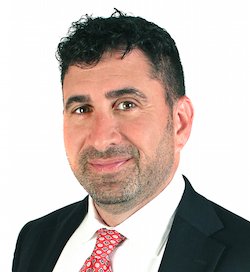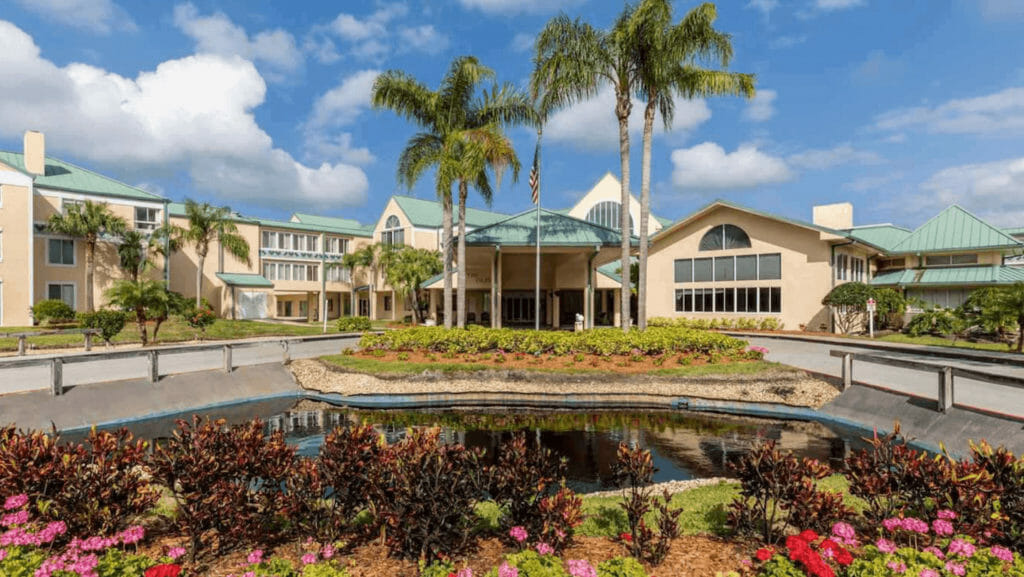
If you ask senior living executives to define “culture change,” you’re likely to hear a dozen different perspectives about what it means and how to achieve it. Although most will agree about the value of a resident-focused culture, many struggle to lead culture change that is truly meaningful and sustainable.
Unfortunately, many companies launch culture-change efforts with top-down objectives and then attempt to measure results within a fixed, often unrealistic, timeframe. When Tutera Senior Living & Health Care introduced our new culture-change initiative, YOUNITE, we opted for a different approach.
After nearly three years of research and development, we rolled out YOUNITE just over a year ago. YOUNITE is not prescribed or dictated, and as such, is not a “program.” Rather, we introduced YOUNITE as a philosophy with guidelines to inspire choice and autonomy among staff, residents and families, as opposed to compliance with specific criteria or predetermined rules. It is guided by a fundamentally different premise: We can’t know for sure what anyone really wants unless we ask — and ask continuously. As an integrated philosophical framework, YOUNITE consists of five focus areas:
- Resident choice
- Community involvement
- Staff appreciation
- Homelike environment
- Dining experience
YOUNITE’s only requirement is that each of our 47 facilities in 13 states meets regularly with residents and staff to identify what’s most important to them and then create a plan to achieve it. It recognizes the simple fact that no one is more knowledgeable about the needs of residents, families and staff than those who live and work in the communities.
Perpetuating the philosophy
From the onset, our intention with YOUNITE has been to identify, understand and respond to the individualized needs and preferences of residents and staff. Rather than meet a universally fixed goal, YOUNITE is designed to find out what truly matters to residents and staff, what works, what doesn’t, and how we can effectively adjust course.
When we first introduced YOUNITE, there was, naturally, a great deal of excitement. As with many new endeavors, the initial enthusiasm has a tendency to wane when people are confronted with the pragmatic aspects of making things happen — and keeping them going. We implemented YOUNITE prepared for this natural process of evolution. We always knew we would be returning to ask, listen and retool on a continual basis. Because culture-change efforts tend to fizzle over time, we always were proactively prepared to pursue the next level of attention it would require.
In our discussions to identify the next stage of development, the term “Reignite YOUNITE” was mentioned. We quickly abandoned this language as it implied that something wasn’t working. In fact, YOUNITE has successfully sparked many new initiatives in Tutera’s communities across the country — from a new physical therapy partnership with a local grocery store and a revamped communications system to help residents get better rest, to a new motivational break room designed by staff, a completely revamped restaurant-style dining experience, and a new approach to honoring the experience of loss and grief.
Even with theses successes, we recognized the need to consistently identify ways to improve and update the intent of YOUNITE. To further perpetuate the philosophy, we entered the next phase of our culture change effort by employing YOUNITE’s guiding principles: asking and listening.
We met with staff in each of our communities to discuss ideas to better integrate YOUNITE. We asked representatives in each facility to make a presentation at our annual operations meeting to share their ideas. In keeping with the YOUNITE philosophy, we didn’t want executives standing up in front of employees to report or explain. That would be a “program.” YOUNITE is about cultivating autonomy, initiative and giving voice to those who know best the distinct needs, preferences and challenges within their own communities.
Ambassadors for change
The reason culture change efforts often fail is because it becomes yet another responsibility of an administrator whose plate already is too full to devote adequate time and attention. Culture change efforts also fail when they are not fully ingrained in the day-to-day experiences of frontline staff. What we determined in assessing YOUNITE’s first year was a greater need for training new employees and expanded education for existing staff.
For the philosophy to become fully embraced in all levels of the organization, we also created YOUNITE Ambassadors. Each facility selects a YOUNITE Ambassador — someone who is not necessarily an administrator or director of nursing, but rather a frontline staff member. Ambassadors receive specific YOUNITE leadership training and meet regularly with their communities to determine needs and ideas for improvement.
Consistent with the YOUNITE philosophy, the ambassador structure creates another level of opportunity for autonomy in forging meaningful change. As an executive working in our headquarters in Kansas City, MO, I find this process to be extraordinarily powerful. For example, I can’t fully understand the experience of a CNA in Statesboro, GA, who is struggling with multiple call lights during the afternoon shift change. YOUNITE’s focus on expanding community-level autonomy and leadership is critical to its success.
Making change virtual and visible
In reviewing YOUNITE’s progress, we recognized a need to expand opportunities for staff and residents to connect more immediately. As a top priority, we are exploring moderated social media platforms that will enable staff, residents and families to post ideas, ask questions, present and respond to concerns and share successes. The effective use of social media will be a critical next step to more fully integrating the YOUNITE philosophy.
Online and offline, visibility is key to helping everyone involved understand and feel connected to a change effort. YOUNITE encourages concrete examples of changes in progress, such as regular updates in newsletters, bulletin board notices or weekly meetings. YOUNITE doesn’t dictate how progress should be communicated. However, it requires each facility determine the best method to help staff and residents connect the dots between identifying a need to highlighting results.
For example, if residents tell staff they want a new gardening area, then the YOUNITE process encourages sharing specific steps toward the goal — such as site selection, tool purchases, planting schedule development — until the new garden is visible. By connecting employees and residents to the process, the value of YOUNITE becomes real and tangible. And in some cases, facilities are showcasing completed projects with “Brought to you by YOUNITE” signage. With concrete cause and effect visibility, the YOUNITE philosophy can be clearly demonstrated.
As YOUNITE becomes more deeply ingrained in Tutera’s culture, we will continue to listen, respond and expand our efforts. We’re in this for the long haul. YOUNITE is more than a culture-change effort. It is about continuously demonstrating who we are and how we provide the highest level of personalized care as our ultimate measurement of success.
Randy Bloom, Ph.D., is president and chief operating officer at Tutera Senior Living & Health Care.




